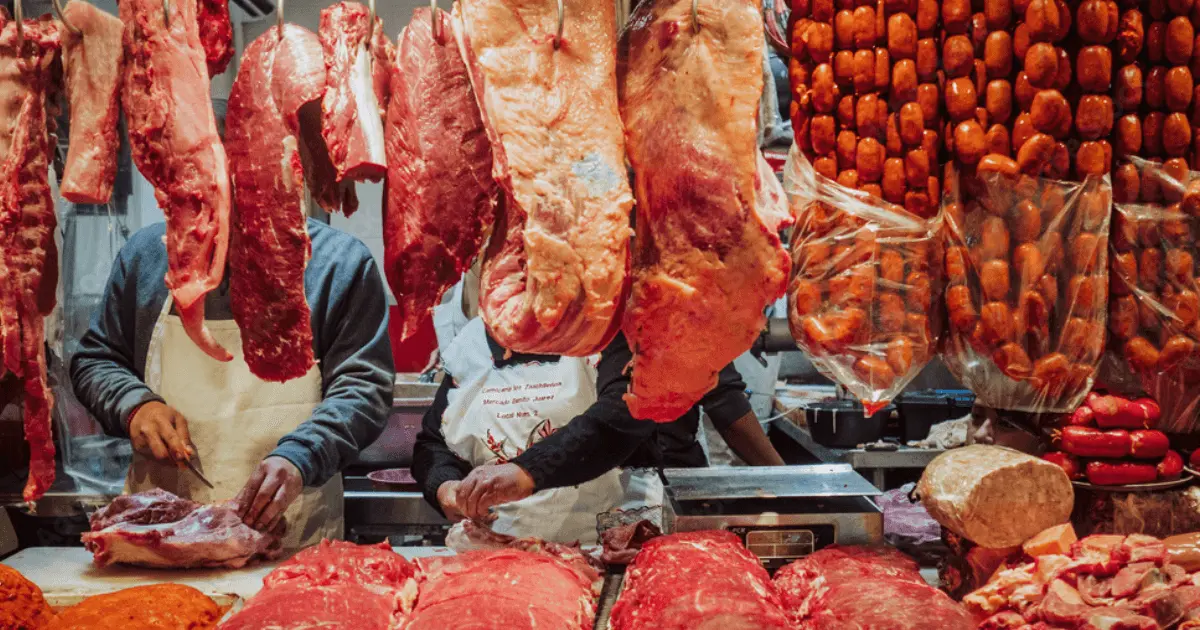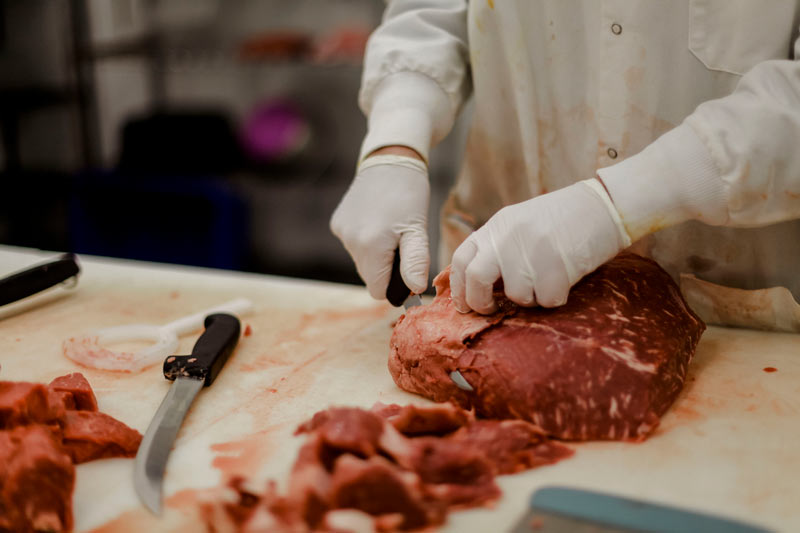Why Purchasing at a Local Meat Market Guarantees Fresh, High-Quality Cuts
Purchasing at a neighborhood meat market provides unique advantages that typically go unnoticed by customers accustomed to bigger retail chains. These markets supply direct access to fresh, high-grade cuts, a result of lessened transport time from ranch to counter. This not only enhances flavor but additionally sustains regional farmers, cultivating area connections and lasting techniques. Strenuous high quality control gauges make sure that each purchase fulfills high requirements of safety and security and freshness. The implications of choosing regional expand past instant advantages, motivating a more detailed examination of what this option truly means for both customers and the neighborhood economic climate.
Advantages of Neighborhood Sourcing
In the realm of food procurement, the advantages of regional sourcing stand out prominently. By purchasing meat from neighborhood markets, customers gain straight accessibility to products that are frequently fresher and more tasty than those found in bigger, business supermarkets. Regional sourcing decreases the time and range food travels from farm to table, which not only boosts preference but likewise preserves nutritional value.

Additionally, neighborhood sourcing typically offers openness relating to the origins of the meat. Consumers can make inquiries concerning the farming techniques made use of, animal well-being criteria, and whether the meat is grass-fed or natural. This information empowers customers to make enlightened decisions straightened with their worths.
Quality Control Standards
Local meat markets typically abide by strenuous quality assurance requirements that make sure the items used meet high safety and security and freshness criteria. These requirements commonly include different stages of the meat manufacturing process, from sourcing to dealing with and storage space.
First, local markets often establish stringent provider requirements, guaranteeing that only reliable ranches and manufacturers are utilized - bagley meat market edwardsville il. This reduces the probability of contamination and promotes higher pet well-being standards. Additionally, numerous neighborhood meat markets carry out regular evaluations to confirm that the meat is refined under hygienic conditions, better decreasing health and wellness risks
Temperature control is an additional essential facet of quality control. Local meat markets often keep an eye on refrigeration systems to maintain ideal storage temperature levels, guaranteeing that meat stays fresh and safe for consumption. The execution of traceability systems allows markets to track the origin of their items, offering transparency and accountability.
Finally, staff at neighborhood meat markets are typically educated to recognize indications of perishing and recognize proper handling strategies. This commitment to quality control not only elevates the overall criterion of the meat but likewise promotes customer depend on, making regional meat markets a trusted source for high-grade cuts.
Supporting Regional Farmers
Sustaining neighborhood farmers is important for promoting a sustainable food system and boosting neighborhood durability. When customers select to shop at neighborhood meat markets, they directly add to the incomes of farmers in their area. This not just sustains the neighborhood economic climate however likewise reinforces the farming sector, making sure that it continues to be lively and feasible.


Additionally, supporting local farmers promotes a feeling of area and link in between consumers and producers. It motivates transparency in food sourcing and instills depend on, as customers can create connections with the people that elevate their food. This straight link inevitably brings about an extra involved and informed public, which is crucial for supporting for sustainable agricultural methods in the future.
Sustainable Practices
Lasting methods in meat markets play a critical duty in advertising environmental stewardship and guaranteeing animal well-being. Neighborhood meat markets usually prioritize sourcing their products from ranches that apply ethical and lasting farming approaches. These methods include rotational grazing, which helps preserve dirt wellness and reduces carbon discharges, together with lessening making use of anti-biotics and hormonal agents in livestock.
In addition, neighborhood meat markets commonly stress transparency in their supply chains. Consumers are offered with information pertaining to the beginning of their meat, permitting them to make enlightened options that align with their values. By supporting neighborhood farmers who exercise sustainable methods, consumers add to the conservation of biodiversity and original site the reduction of transportation emissions connected with long-distance meat circulation.
In addition, lots of local meat markets engage in waste reduction strategies, such as using every component of the animal and advertising off-cuts that may or else go unsold. By fostering an extra sustainable technique to meat usage, these markets not only provide top quality products however additionally contribute favorably to the setting and animal well-being. Fundamentally, shopping at a neighborhood meat market straightens customers with a broader movement towards accountable and moral food sourcing.
Customized Customer Care
Buying at a meat market typically incorporates greater than simply the products offered; it is likewise regarding the experience and the connections developed in between customers and staff. Personalized client service is a hallmark of regional meat markets, establishing them aside from larger grocery store chains. Experienced team put in the time to understand private customer choices, making certain that each see is customized to specific requirements.
Consumers gain from experienced advice on cuts, cooking approaches, and prep work tips, fostering a feeling of count on and commitment. This tailored communication allows consumers to ask concerns and seek referrals, resulting in notified investing in decisions. Staff members typically remember routine clients and their preferences, creating an inviting ambience that cultivates community ties.
Moreover, personalized solution expands to unique demands, such as personalized cuts or particular prep work methods, which bigger stores might not accommodate. This level of interest reinforces the dedication of local meat markets to high quality and customer contentment.
In significance, personalized customer solution not just enhances the purchasing experience yet also ensures that consumers entrust the best Homepage items matched to their cooking demands, making every browse through a rewarding one.
Conclusion
Sustaining regional farmers promotes neighborhood connections and enhances the regional economy, while sustainable click here to find out more methods contribute to environmental stewardship. In addition, individualized consumer service enhances the purchasing experience, making regional meat markets a recommended option for customers seeking both high quality and honest factors to consider in their food sourcing.
The ramifications of selecting neighborhood extend past prompt advantages, prompting a better exam of what this option really indicates for both customers and the neighborhood economy.
Supporting neighborhood meat markets likewise adds to the regional economic climate. Neighborhood meat markets often keep track of refrigeration systems to keep optimum storage temperatures, making sure that meat remains fresh and risk-free for usage.Neighborhood farmers are typically a lot more attuned to the certain requirements of their communities, expanding plants and raising livestock that line up with local tastes and choices. Supporting regional farmers promotes community connections and enhances the neighborhood economic climate, while sustainable methods contribute to environmental stewardship.